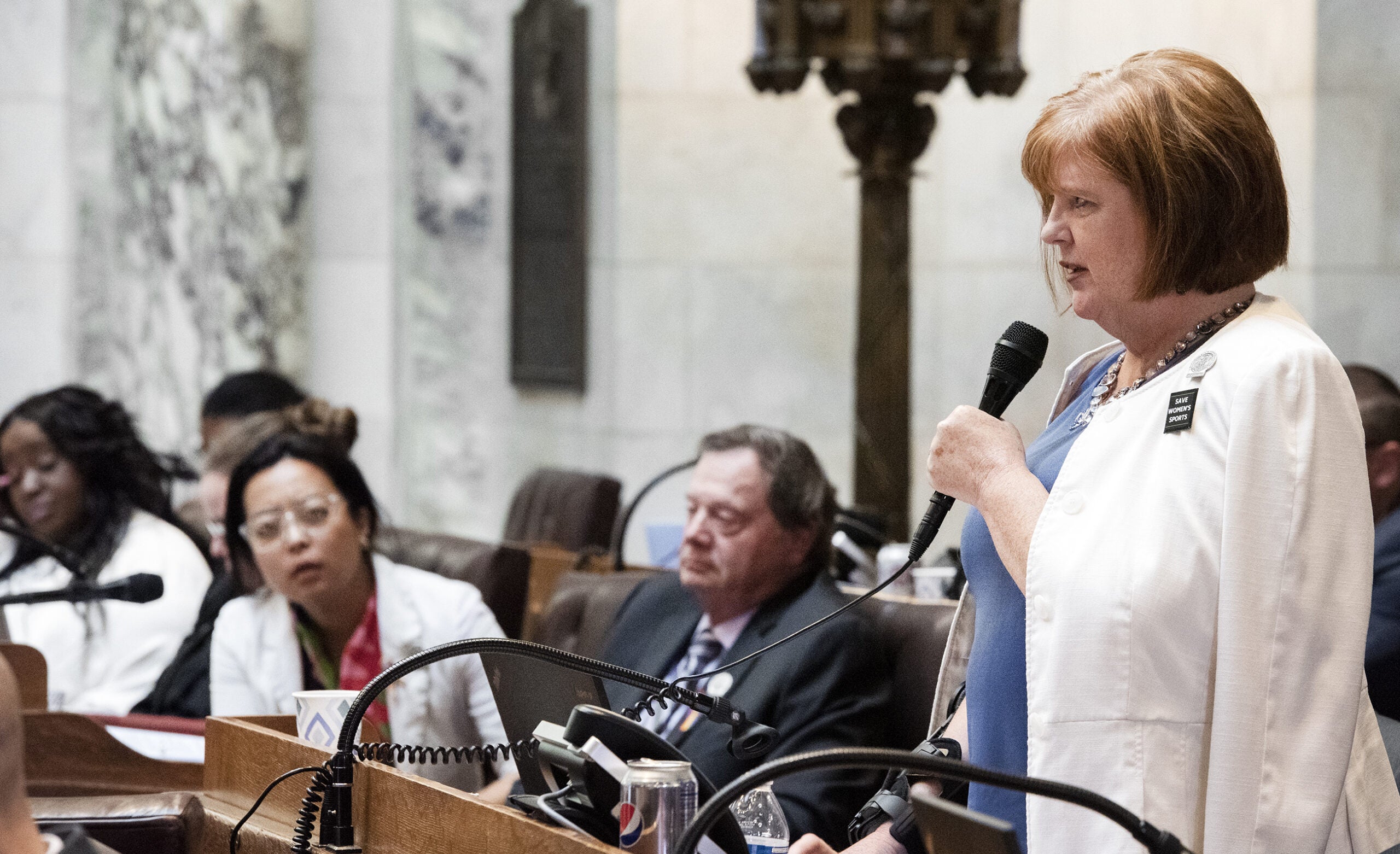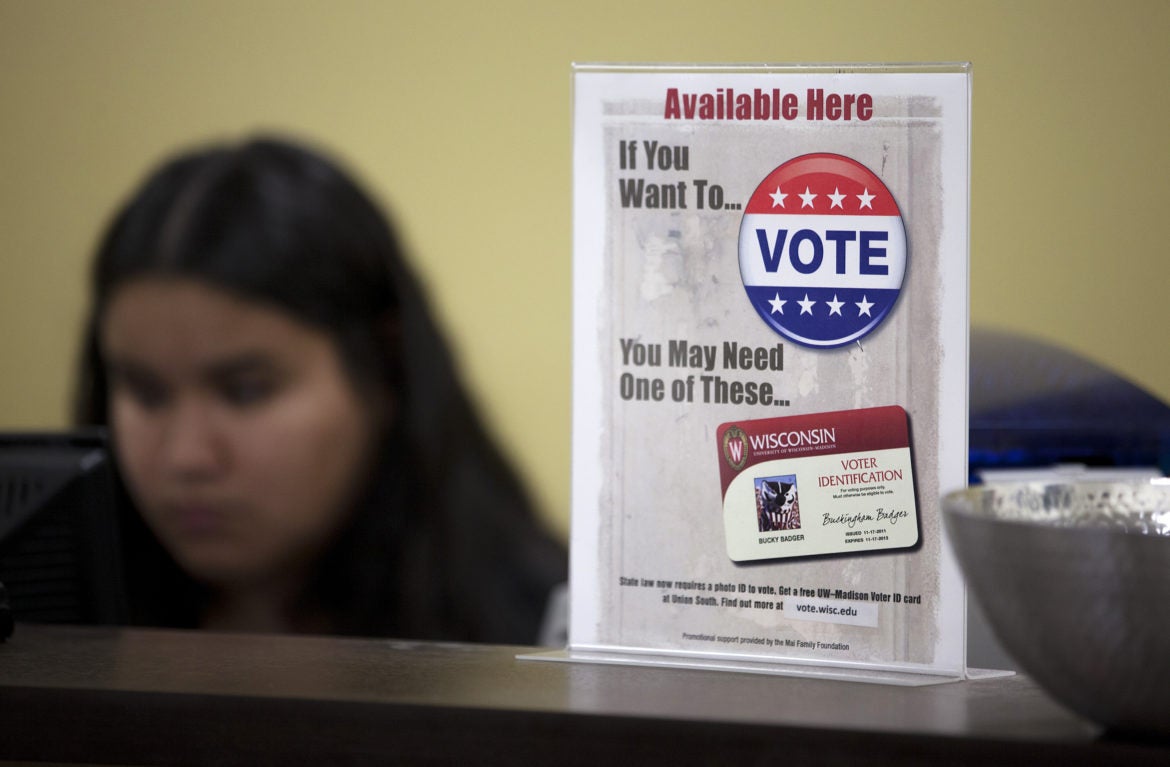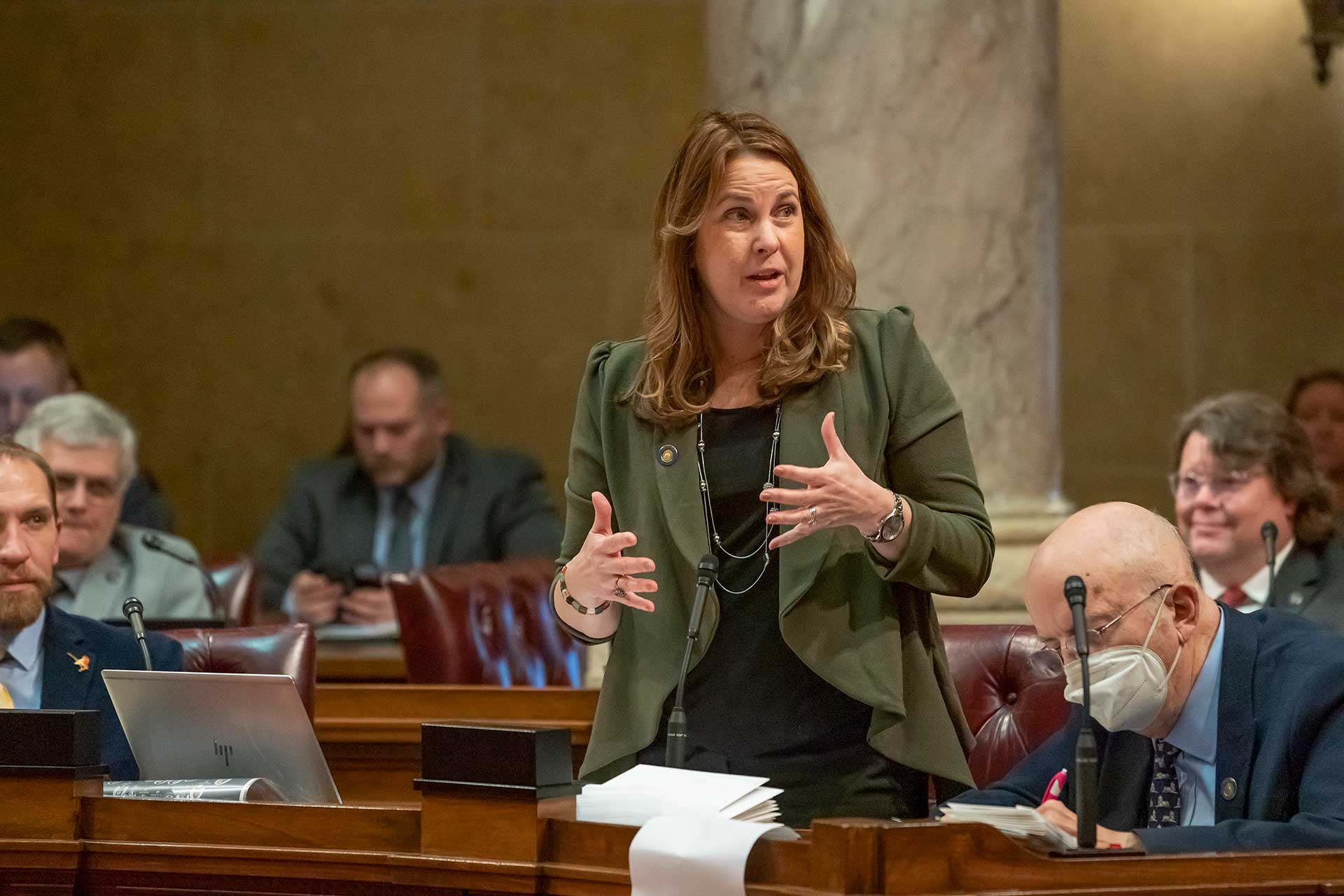A hearing on proposed changes to regulations of high-capacity wells in Wisconsin drew a large crowd to the state Capitol on Wednesday.
Dozens testified for and against the proposal, which would make it easier to rebuild and repair those wells by allowing owners of existing wells to do so without a permit. The crowd overflowed into an adjacent hallway.
Great to see everyone who came to testify on the high capacity wells bill today. Thanks to the committee for the chance to speak in favor. pic.twitter.com/NjpzCXmNwV
— Scott Fitzgerald (@SenFitzgerald) March 15, 2017
Stay informed on the latest news
Sign up for WPR’s email newsletter.
High-capacity wells, which can pump more than 70 gallons of water per minute and more than 100,000 gallons in a day, are often used by agricultural businesses, like large-scale vegetable and dairy farms.
Proponents argue the changes protect landowners’ rights, provide stability to industry, and preserve property values.
“For a small farm or business that goes through the time and expense to get such a permit, they need certainty that they will be able to operate under that permit,” said Senate Majority Leader Scott Fitzgerald, R-Juneau, one of the bill’s sponsors. “They also need the ability to maintain these wells without the fear that doing so will trigger new, costly permitting.”
Several farmers who utilize high-capacity wells testified at the hearing.
“It seems to me that to require a person to make a new application just to repair a well would be like asking a car owner to apply for a new automobile registration when he needs to repair or replace the radiator in his car,” said Robert Guenthner, a potato farmer from Antigo.
Opponents argue the regulatory changes would enable well permits to exist in perpetuity and lead to depletion of the state’s groundwater.
“When the high capacity wells kick on across the Portage County line, which is about a half mile down the road, within 24 hours I can see the difference in the Ten Mile Creek in my back yard,” said Criste Greening, a board member of Sustain Rural Wisconsin Network.
Opponents also argued depleted lakes and rivers could hurt Wisconsin’s tourism industry.
“This is a fleece of our natural resources,” said Tammy Wood, a Reedsburg resident. “It just don’t make sense to regular citizens of Wisconsin why this is being pushed today.”
The bill also calls for groundwater studies to examine the effect of high-capacity wells in the state’s Central Sands region, where groundwater issues have led to clashes between agricultural industry and environmental advocates.
The Senate passed an identical bill during the last legislative session, but it failed to pass the Assembly before lawmakers adjourned for the year.
.@SenFitzgerald said this morning he hopes to advance the bill to a Senate floor vote as early as next month. https://t.co/c5FWH0Px4h
— Laurel White (@lkwhite) March 15, 2017
Wisconsin Public Radio, © Copyright 2025, Board of Regents of the University of Wisconsin System and Wisconsin Educational Communications Board.





